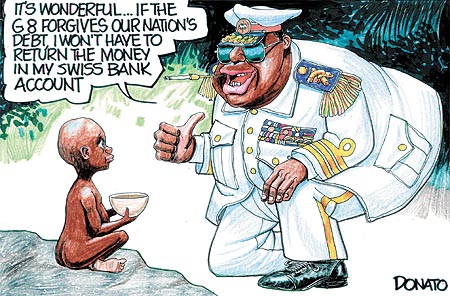Three years before he died in 2005, my Dad predicted the pop of the housing bubble. I don't know how, but he knew that the propping up of the US economy on the building of giant suburban mansions was temporary.
I've been missing him lately, which is a redundant statement since I've been purposefully wallowing around in grief since he died, writing a memoir about his death and dying and grief. My conceit that grief is a foreign place keeps me isolated, even while I'm surrounded by the bustle and chaos that is New York City and my rich social and cultural life here.
But since the economic shit hit the fan a few months ago, I've been missing Dad's wisdom. Even when he was wrong, he had the guts to admit it and accept the consequences. I miss that ultimate buck-stopper. Until his death, he was the one I either ran ideas and plans by or enacted decisions against. If I was the tetherball, he was always the pole, firmly planted in our little patch of the hollow.
Without my sound Dad giving advice, and with the so-called economic experts like Greenspan admitting that they "can't get their head around" our collateralized debt problems, I was wishing I had an authority to go to.
Now who advises me on where to park my little nest egg? Who do I look to each time the market takes a leap off a cliff? The answer would be almost laughable if I weren't the only one giving it: Our new president. When Obama was sworn in, I let out a huge sigh of relief. I could relax a little knowing that someone with a calm head was going to keep an eye on how Mack handled my Morgan Stanly account.
Right now it seems that everyone is looking for a a strong, wise, decisive voice. As kos has noted on his
website, "It's really nice having adults back in charge."
Lisa Belkin has a piece in today's New York Times magazine titled, "Father in Chief."
"He seems like such a good father, in fact, that many of us began expecting him to be our parent, too," she writes. How great a parent is he? There's a sweeping shift in the importance of what Belkin calls truth-telling.
Frank talk,
honesty,
full disclosure are all terms employed by Obama's administration, terms that are now slipping into general media usage. Like most parents, they don't always get it right.
Today,
Charles Blow,also in the Times, takes a look at how this administration is using language, in his case about race. Writes Blow, "Then came Attorney General Eric Holder's scathing comments about America being "a nation of cowards" because we don't have "frank" conversations about race." Holder got big shit for his language, but as Blow credits, his reasoning is sound.
The truth, whether its about racism or the economy, or
how our budget is tallied, matters to this administration.
Lord knows, when my Dad delivered advice, it wasn't always clean but it was frank. Without him I've resorted to floundering in my decisions, and seeing a therapist. There's no substitute for my Dad, but at least I have a president.
Belkin closes her article, "There is strange comfort in knowing that our parents did much of it wrong, too -- and a cause for concern in the fact that there isn't a therapist's couch large enough for 300 million of us."
If a therapist isn't your thing, maybe you could seek a higher father. I hear confession is
making a comeback.



